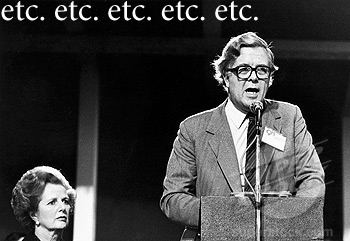
 Confused about etc. usage? Here's what's important.
Confused about etc. usage? Here's what's important.
Et cetera is a Latin phrase that means “and others.” It is mostly used in the short form “etc.”
“Etc.” is used to shorten a list. When there are many things to say, and the reader or listener will already understand what they are, “etc.” can be used to make the list shorter.
The most important thing to remember about “etc.” usage is that “etc.” should only be used to make things easier for the reader. For a list that could be long and would waste the reader’s time, it is a good idea.
Green vegetables (broccoli, spinach, etc.) can be good for your health.
Bad:
Green vegetables (broccoli, spinach, Swiss chard, dandelion greens, loose leaf, boy choy, lollo rosso, romaine lettuce, chicory, water spinach, butterhead, arugula, kale, cyclone spinach, mustard greens, collard greens, red leaf, turnip greens, endive, asparagus, artichoke) can be good for your health.
Here, the reader already understands what green vegetables are, and can guess what would be on a list of green vegetables. The point is to say that green vegetables are healthy, and not to give examples of every possible green vegetable. A full list of green vegetables is unnecessary and wastes the reader’s time.
In many cases however, “etc.” usage can make the writer seem sloppy, lazy, or even dishonest.
A lazy writer can use “etc.” because he or she does not want to explain things to the reader.
This unique new chemical has many amazing uses (treating cancer, boosting the immune system, etc.) that are likely to make it very popular.
Here, the writer uses “etc.” so that he or she does not have to explain more. This saves time for the writer but makes things difficult for the reader, who cannot guess what the other amazing uses are.
“Etc.” can also show that the writer does not care about the reader enough to think about his or her perspective.
Important thinkers (Flaubert, Rousseau, etc.) all agree on this idea.
Here, the writer thinks that it is not necessary to explain who the important thinkers are, or who agrees on the idea. It is important, because the reader does not know and cannot guess.
The worst use of “etc.” is to try to trick the reader into thinking that there are more examples than there are.
English contains thousands of words that don’t rhyme with anything else—orange, silver, etc.—and which can be difficult to use in writing lyrics.
Here, there are not thousands of examples, but by giving two examples and using “etc.”, the writer tries to trick the reader into believing that there are.
The important thing is that “etc.” should make things easier for the reader, and not for the writer.
If you are not sure whether to use “etc.”, it is better not to.
If you do want to use "etc.", remember seven important points:
- 1) Always put a full stop at the end of “etc.”
- 2) If “etc.” is at the end of a sentence, you do not need another full stop after it, but if the sentence ends with an exclamation mark or question mark, you still need to put use them. They come after the full stop, and do not replace it. A comma also comes after the full stop.
- 3) “Etc.” is very often used in parentheses, or in a phrase separated by dashes.
- 4) “And etc.” is wrong. Do not use it. It means “and and others” and does not make sense.
- 5) Do not use “etc.” at the end of a list that starts with “e.g.,” “for example,” or “such as.” These already mean that the list does not contain every possible item, so “etc.” is not necessary. In fact, these can be used instead of “etc.” and sound better in formal writing.
- 6) “Etc.” can also be replaced with “and so on,” “and so forth,” and “among others.” These often sound better than “etc.”
- 7) “Etc.” can be used at the end of a list that starts with i.e., but it is probably better to avoid doing this.
If you feel that using “etc.” is a good idea, follow the points above and you should be fine. Remember, if you are not sure, don’t use it!
Did we catch everything about “etc.?” If not, feel free to add your opinions and ideas in the comments below.
Interested in an edit or proofread?




Visitor comments